- Home
- Helen Dunmore
Out of the Blue Page 11
Out of the Blue Read online
Page 11
The reed-cutters go home
whistling sharply, crab-wise
beneath their dense burdens,
the man on the mare weighs heavy, his broadcloth
shiny and wom, his boots dangling
six inches from ground.
He clenches his buttocks to ease them,
shifts Bible and meat,
thinks of the congregation
gathered beyond town,
wind-whipped, looking for warm
words from his dazed lips.
No brand from the burning;
a thick man with a day’s travel
caked on him like salt,
a preacher, one of those scattered like thistle
from the many-angled home chapel
facing all ways on its slabbed upland.
US 1st Division Airborne Ranger at rest in Honduras
The long arm hangs flat to his lap.
The relaxed wrist-joint is tender, shade-
cupped at the base of the thumb.
That long, drab line of American cloth,
those flat brows knitting a crux,
the close-shaven scalp, cheeks, jawbone and lips
rest in abeyance here, solid impermanence
like the stopped breath of a runner swathed up
in tinfoil bodybag, back from the front.
He rests, coloured like August foliage and earth
when the wheat’s cropped, and the massive harvesters
go out on hire elsewhere,
his single-lens perspex eyeswield pushed up, denting
the folds of his skull stubble, his cap
shading his eyes which are already shaded
by bone. His pupils are shuttered,
the lenses widening inwards,
notions of a paling behind them.
One more for the beautiful table
Dense slabs of braided-up lupins –
someone’s embroidery – Nan,
liking the blue,
one more for the beautiful table
with roses and handkerchiefs, seams
on the web of fifty five-year-olds’ life-spans.
New, tough little stitches
run on the torn
wedding head-dresses.
No one can count them
back to the far-off
ghosts of the children’s conceptions.
Those party days:
one more for the beautiful table
the extinction of breath in a sash.
What looks and surprises!
Nan on her bad legs
resumes the filminess of petals
and quotes blood pricks and blood stains
faded to mauve and to white and to crisp
brown drifts beneath bare sepals –
look, they have washed out.
Lambkin
(a poem in mother dialect)
That’s better, he says, he says
that’s better.
Dense slabs of braided-up lupins –
someone’s embroidery – Nan,
liking the blue,
Oh you’re a tinker, that’s what you are,
a little tinker, a tinker, that’s what you are.
One more for the beautiful table
with roses and handkerchiefs, seams
on the web of fifty five-year-olds’ life-spans.
Come on now, come on, come on now,
come on, come on, come on now,
new tough little stitches
run on the torn
wedding head-dresses.
The children count them
back to the far-off
ghosts of their own conceptions.
Oh you like that, I know, yes,
you kick those legs, you kick them,
you kick those fat legs then.
Those party days
one more for the beautiful table
set out in the hall.
You mustn’t have any tears, you’re my good boy
aren’t you my little good boy.
What looks and surprises!
Nan on her bad legs
resumes the filminess of petals,
she’ll leave it to Carlie
her bad spice.
Let’s wipe those tears, let’s wipe off all those tears.
That’s better, he says, he says
that’s right.
She quotes blood pricks and bloodstains
faded to mauve and to white and to crisp
brown drifts beneath bare sepals –
look, they have washed out.
The green recording light falters
as if picking up voices
it’s pure noise grain and nothing more human.
It’s all right lambkin I’ve got you I’ve got you.
Dublin 1971
The grass looks different in another country.
By a shade more or a shade less, it startles
as love does in the sharply-tinged landscape
of sixteen to eighteen. When it is burnt
midsummer and lovers have learned to make love
with scarcely a word said, then they see nothing
but what is closest: an eyelash tonight,
the slow spread of a sweat stain,
the shoe-sole of the other as he walks off
watched from the mattress.
The top deck of the bus babbles with diplomats’
children returning from school, their language
an overcast August sky which can’t clear.
Each syllable melting to static
troubles the ears of strangers, no stranger
but less sure than the stick-limbed children.
With one silvery, tarnishing ring between them
they walk barefoot past the Martello tower
at Sandymount, and wish the sea clearer,
the sun for once dazzling, fledged
from its wet summer nest of cloud-strips.
They make cakes of apple peel and arrowroot
and hear the shrieks of bold, bad seven-year-old Seamus
who holds the pavement till gone midnight
for all his mother’s forlorn calling.
The freedom of no one related for thousands of miles,
the ferry forever going backward and forward
from rain runnel to drain cover…
The grass looks different in another country,
sudden and fresh, waving, unfurling
the last morning they see it, as they go down
to grey Dún Laoghaire by taxi.
They watch the slate rain coming in eastward
pleating the sea not swum in,
blotting the Ballsbridge house with its soft sheets
put out in the air to sweeten.
The hard-hearted husband
‘Has she gone then?’ they asked,
stepping round the back of the house
whose cat skulked in the grass.
She’d left pegs dropped in the bean-row,
and a mauve terrycloth babygrow
stirred on the line as I passed.
Her damsons were ripe and her sage was in flower,
her roses tilted from last night’s downpour,
her sweetpeas and sunflowers leaned anywhere.
‘She got sick of it, then,’ they guessed,
and wondered if the torn-up paper
might be worth reading, might be a letter.
‘It was the bills got her,’ they knew,
seeing brown envelopes sheared with the white
in a jar on the curtainless windowsill,
some of them sealed still, as if she was through
with trying to pay, and would sit, chilled,
ruffling and arranging them like flowers
in the long dusks while the kids slept upstairs.
The plaster was thick with her shadows,
damp and ready to show
how she lived there and lay fallow
/> and how she stood at her window
and watched tall pylons stride down the slope
sizzling faintly, stepping away
as she now suddenly goes,
too stubborn to be ghosted at thirty.
She will not haunt here. She picks up her dirty
warm children and takes them
down to the gate which she lifts as it whines
and sets going a thin cry in her.
He was hard-hearted and no good to her
they say now, grasping the chance to be kind.
Malta
The sea’s a featureless blaze.
On photographs nothing comes out
but glare, with that scarlet-rimmed fishing boat
far-off, lost to the lens.
At noon a stiff-legged tourist in shorts
steps, camera poised. He’s stilted
as a flamingo, pink-limbed.
Icons of Malta gather around him.
He sweats as a procession passes
and women with church-dark faces
brush him as if he were air.
He holds a white crocheted dress
to give to his twelve-year-old daughter
who moons in the apartment, sun-sore.
The sky’s tight as a drum, hard
to breathe in, hard to walk under.
He would not buy ‘bikini for daughter’
though the man pressed him, with plump fingers
spreading out scraps of blue cotton.
Let her stay young, let her know nothing.
Let her body remain skimpy and sudden.
His wife builds arches of silence over her
new breasts and packets of tampons marked ‘slender’.
At nights, when they think she’s asleep,
they ache in the same places
but never louder than a whisper.
He watches more women melt into a porch.
Their white, still laundry flags from window to window
while they are absent, their balconies blank.
At six o’clock, when he comes home and snicks
his key in the lock so softly neither will catch it
he hears one of them laugh.
They are secret in the kitchen, talking of nothing,
strangers whom anyone might love.
Candlemas
Snowdrops, Mary’s tapers,
barely alight in the grey shadows,
Candlemas in a wet February,
the soil clodded and frostless,
the quick blue shadows of snowlight again missed.
The church candles’ mass
yellow as mothering bee cells,
melts to soft puddles of wax,
the snowdrops, with crisp ruffs
and green spikes clearing the leaf debris
are an unseen nebula
caught by a swinging telescope,
white tapers
blooming in structureless dusk.
Pilgrims
Let us think that we are pilgrims
in furs on this bleak water.
The Titanic’s lamps hang on its sides like fruit
on lit cliffs. We’re shriven for rescue.
The sea snaps at our caulking.
We bend to our oars and praise God
and flex our fingers to bring
a drowned child out from the tarpaulin.
We’re neither mothers nor fathers, but children,
fearful and full of trust,
lamblike as the Titanic goes down
entombing its witnesses.
We row on in a state of grace
in our half-empty lifeboats, sailing
westward for America, pilgrims,
numb to the summer-like choir
of fifteen hundred companions.
An Irish miner in Staffordshire
On smooth buttercup fields
the potholers sink down like dreams
close to Roman lead-mining country.
I sink the leafless shaft of an hydrangea twig
down through the slippy spaces I’ve made for it.
Dusted with hormone powder, moist,
its fibrous stem splays into root.
I graze the soft touches of compost
and wash them off easily, balled
under the thumb – clean dirt.
There’s the man who gave me my Irish name
still going down, wifeless, that miner
who shafted the narrow cuffs of the earth
as if it was this he came for.
FROM
SHORT DAYS, LONG NIGHTS
(1991)
Those shady girls
Those shady girls on the green side of the street,
those far-from-green girls who keep to the shade,
those shady girls in mysterious suits
with their labels half-showing
as the cream flap of the jacket swings open,
those girls kicking aside the front-panelled pleats
of their cream suits with cerise lapels,
those on-coming girls,
those girls swinging pearly umbrellas
as tightly-sheathed as tulips in bud
from an unscrupulous street-seller,
those girls in cream and cerise suits
which mark if you touch them,
those girls with their one-name appointments
who walk out of the sunshine.
The dream-life of priests
Do they wake careless and warm
with light on the unwashed windows
and a perpetual smell of bacon,
do their hearts sink at today’s martyr
with his unpronounceable name
and strange manner of execution?
Do they wake out of the darkness
with hearts thudding like ours
and reach for the souvenir lamp-switch
then shove a chair against the door
and key facts into the desk-top computer
while cold rattles along the corridor?
Do they cry out in sleep
at some barely-crushed thought,
some failure to see the joke,
or do they rest in their dreams
along the surface of the water
like a bevy of dragonflies
slack and blue in the shallows
whirring among reed-mace and water-forget-me-not
while the ripples cluck?
Do they wake in ordinary time
to green curtains slapping the frame
of a day that’ll cloud later on,
to cars nudging and growling for space,
to a baptismal mother, wan with her eagerness
and her sleepless, milk-sodden nights?
Do they reach and stroke the uneven plaster
and sniff the lime-blossom threading
like silk through the room,
or do they wait, stretched out like babies
in the gold of its being too early
with sun on their ceilings wobbling like jelly
while their housekeepers jingle the milk-bottles
and cry ‘Father!’ in sixty-year-old voices
and scorch toast with devotion –
do they sense the milk in the pan rising
then dive with their blue chins, blundering
through prayer under their honeycomb blankets?
Sisters leaving before the dance
Sisters leaving before the dance,
before the caller gets drunk
or the yellow streamers unreel
looping like ribbons
here and there on the hair of the dancers,
sisters at the turn of the stairs
as the sound system
one-twos, as the squeezebox
mewed in its case
is slapped into breath, and that scrape
of the tables shoved back for the dance
burns like the strike of a match
in the cup of two hands.
Ripe melons and meat
mix in the binbags with cake
puddled in cherry-slime, wind
heavy with tar
blows back the yard door, and I’m
caught with three drinks in my hands
on the stairs looking up
at the sisters leaving before the dance,
not wishing to push past them
in their white broderie anglaise and hemmed
skirts civilly drawn
to their sides to make room
for the big men in suits,
and the girls in cerise
dance-slippers and cross-backed dresses
who lead the way up
and take charge of the tickets, and yet
from their lips cantaloupe
fans as they speak
in bright quick murmurs between
a violin ghosting a tune
and the kids in the bar downstairs
begging for Coke, peaky but certain.
The sisters say their good nights
and all the while people stay bunched
on the stairs going up, showing respect

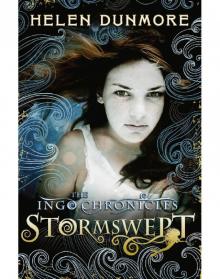 The Ingo Chronicles: Stormswept
The Ingo Chronicles: Stormswept The Deep
The Deep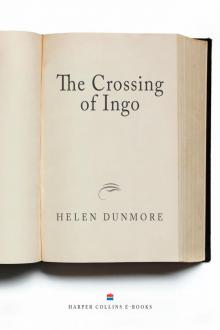 The Crossing of Ingo
The Crossing of Ingo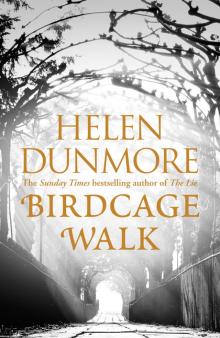 Birdcage Walk
Birdcage Walk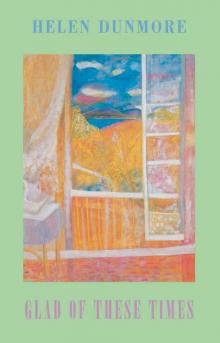 Glad of These Times
Glad of These Times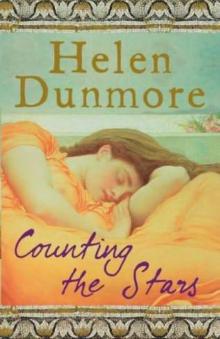 Counting the Stars
Counting the Stars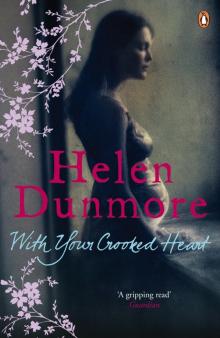 With Your Crooked Heart
With Your Crooked Heart Burning Bright
Burning Bright House of Orphans
House of Orphans Mourning Ruby
Mourning Ruby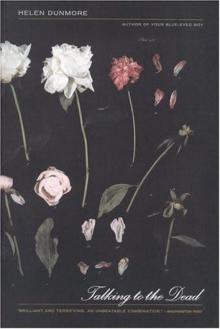 Talking to the Dead
Talking to the Dead Exposure
Exposure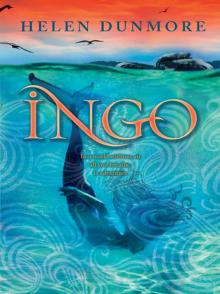 Ingo
Ingo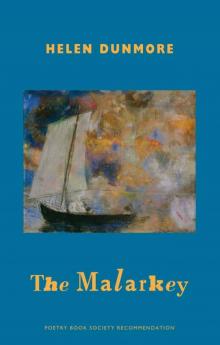 The Malarkey
The Malarkey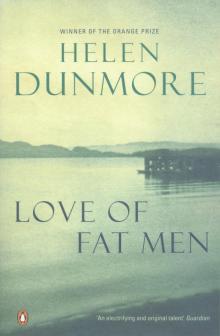 Love of Fat Men
Love of Fat Men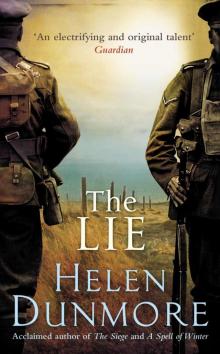 The Lie
The Lie The Siege
The Siege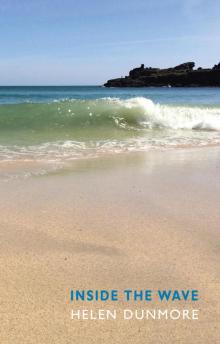 Inside the Wave
Inside the Wave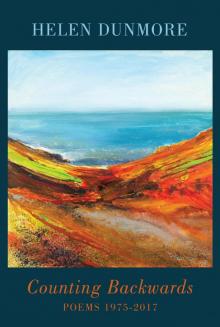 Counting Backwards
Counting Backwards The Land Lubbers Lying Down Below (Penguin Specials)
The Land Lubbers Lying Down Below (Penguin Specials)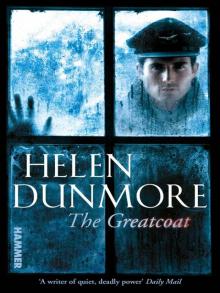 The Greatcoat
The Greatcoat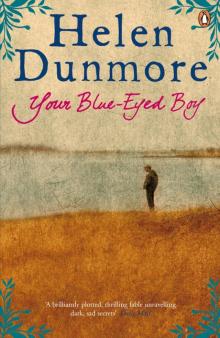 Your Blue Eyed Boy
Your Blue Eyed Boy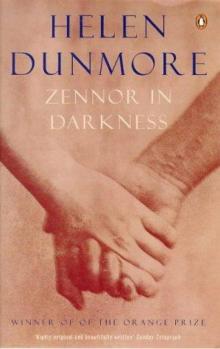 Zennor in Darkness
Zennor in Darkness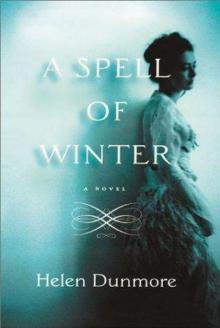 Spell of Winter
Spell of Winter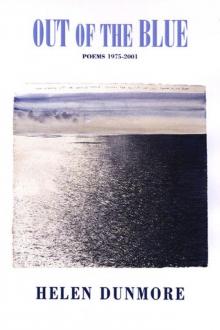 Out of the Blue: Poems 1975-2001
Out of the Blue: Poems 1975-2001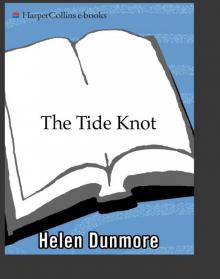 Tide Knot
Tide Knot The Betrayal
The Betrayal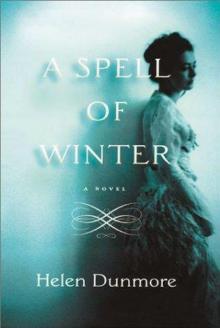 A Spell of Winter
A Spell of Winter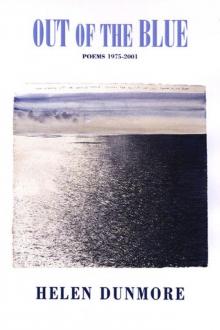 Out of the Blue
Out of the Blue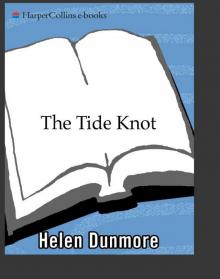 The Tide Knot
The Tide Knot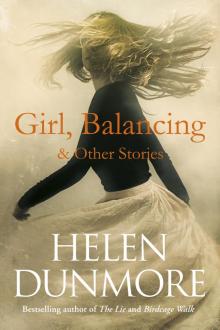 Girl, Balancing & Other Stories
Girl, Balancing & Other Stories Betrayal
Betrayal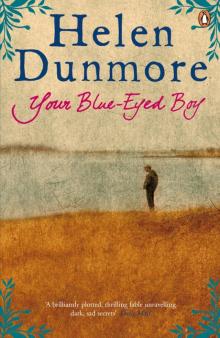 Your Blue-Eyed Boy
Your Blue-Eyed Boy